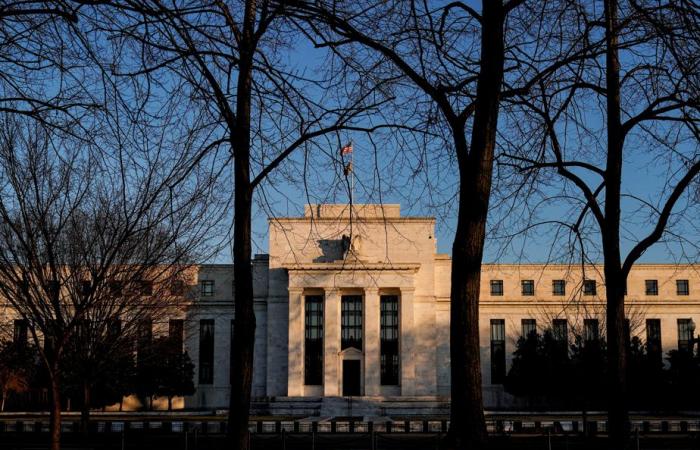(New York) The American banking sector announced on Tuesday legal action against the Central Bank of the United States (Fed), believing that its annual stress tests were “opaque” and ultimately harmed economic growth.
Posted at 11:52 a.m.
“For years, we have raised our serious concerns about the framework of stress tests and the need to reform them,” explains the Bank Policy Institute (BPI), a pressure group bringing together the largest American banking and financial institutions, in a press release.
He argues that these tests, put in place by the Dodd-Frank Act after the 2008 financial crisis, “continue to result in inadequate, volatile and excessive capital reserves, which reduce lending capacity and economic growth.”
Banks claim that these tests limit the volume of loans they could grant to individuals and businesses, affecting employment, capital markets and increasing the cost of credit.
Asked by AFP, the Fed did not react immediately.
The American Banking Association (ABA), as well as the American Chamber of Commerce and several organizations in the state of Ohio – where the action was filed – are parties to these lawsuits.
“This is not about eliminating stress testing, but about ensuring that the process is legal and effective to promote a healthy and growing economy,” explained the Ohio Bankers League, quoted in the press release.
The Fed announced Monday the upcoming launch of a public consultation to improve the transparency of testing and reduce the volatility resulting from capital requirements.
The plaintiffs welcomed this late initiative – an “important first step” –, nevertheless explaining that the limitation period for an appeal expired in February 2025 and therefore had “no other choice but to launch proceedings to preserve their rights”.
Banks criticize the current framework for “erratic” and “without notice” changes to the level of minimum capital required each year, deploring the “unnecessary uncertainty without providing benefits” that results.
These regulations “harm the banking system without making it safer” and “increase the cost of credit for customers,” they said.
Tests carried out in 2024 showed that the main American banks could withstand a possible recession, but would be penalized by Americans' increased use of credit cards which is accompanied by a higher rate of delinquency.






